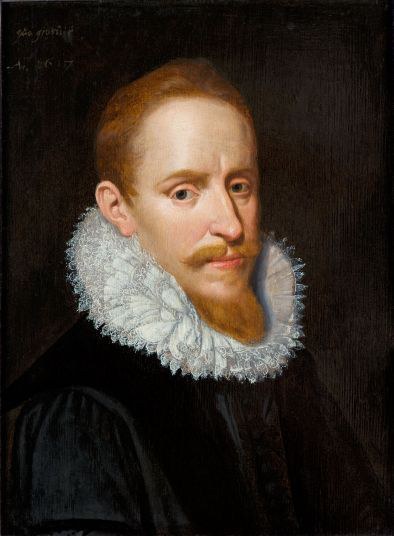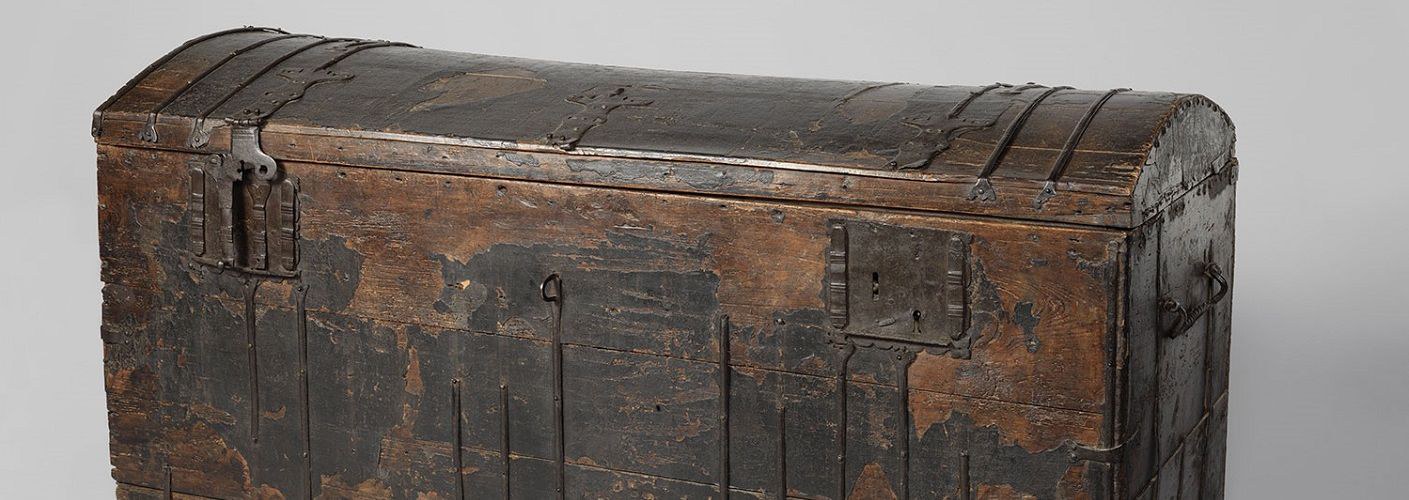Everyone knows Hugo Grotius as the man who escaped from prison in a chest of books. Hugo Grotius ranks as one of the Netherlands’ greatest ever jurists. For many years, as judge-advocate (public prosecutor), he was involved in the judicial process at the Prison Gate. How could a man who first oversaw the Prison Gate later find himself behind bars?
A child prodigy with a talent for writing
Hugo Grotius (1583-1645) was a child prodigy. At the age of eight, he could already write poems in Latin. When he was eleven, he went to university. Aged fifteen, he travelled to France in the company of Johan van Oldenbarnevelt, among others. And when he was twenty, the Dutch East India Company (VOC) asked him to write a text to support the hijacking of a Portuguese cargo ship in the Indian Ocean; an action that brought the VOC the princely sum of three million guilders. Hugo Grotius therefore wrote De Iure Pradeae, in which he justified the hijacking. He would later develop a chapter of this text into his celebrated book Mare Liberum, ‘The Free Sea’ (1609). In this, he argued that the sea, including its shores, belonged to everyone. The term ‘mare liberum’ is still used in international law to refer to the principle of free trade at sea.

Bad smells and nasty food at the Prison Gate
By now, Hugo Grotius was running his own legal practice in The Hague. In 1607, Van Oldenbarnevelt nominated him as judge-advocate to the Court of Holland and the Supreme Court, a role in which he oversaw the Prison Gate. In 1609, for example, he dealt with complaints by five upper-class prisoners. They complained that the food was nasty; it had even made one of them ill! The rooms were not being swept properly and there was a bad smell. The warder did his best to refute the accusations and also made his own objections: the prisoners were failing to pee in the chamber pots and had harassed three young maidservants. Hugo Grotius’ investigation resulted in a tightening of the rules for both the warder and the prisoners.
Maurice rids himself of his political opponents
At that point, however, a religious conflict broke out in Holland. Hugo Grotius wanted nothing to do with fanatic Calvinism. Like Johan van Oldenbarnevelt, he sided with the more moderate Remonstrants, something that would cost him dearly. For Stadholder Maurice, the son of William of Orange, sided with the strict Counter-Remonstrants and immediately had all of his political opponents locked up. The story goes that he seized on the religious conflict largely in order to extend his own power and keep on waging war. Maurice ensured that Hugo Grotius and Van Oldenbarnevelt were imprisoned in the Binnenhof. The latter was executed and the former sentenced to life imprisonment on charges of ‘high treason’. He was transferred to Loevestein Castle and ... escaped.
Hugo Grotius as the co-founder of international law
Hugo Grotius now became even more critical of sovereigns who wanted to wage war in order to increase their power. In his book On the Law of War and Peace of 1625, he renounced the notion that the self-interest of the sovereign could permissibly lead to war. Everyone benefitted from peace. For this reason, all nations should have an internationally-recognised right to peace, and there should be rules about when war might nevertheless be waged. Hugo Grotius’ rules still form the key principle of international law throughout the world. And believe it or not, Hugo Grotius’ book On the Law of War and Peace is still on sale in bookshops today!
